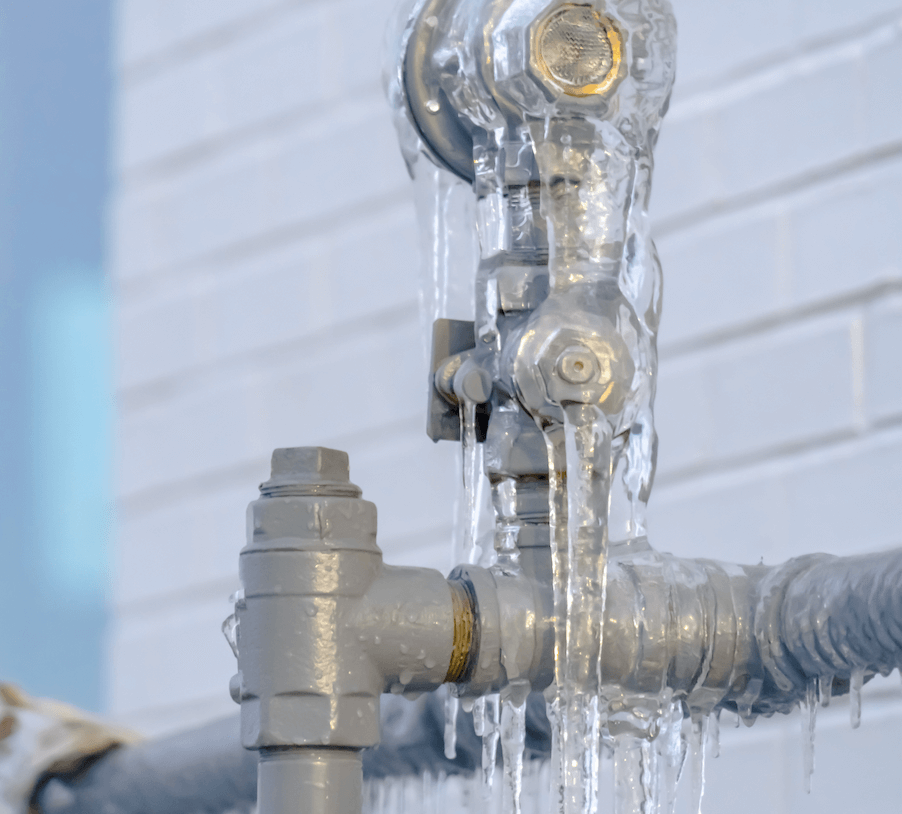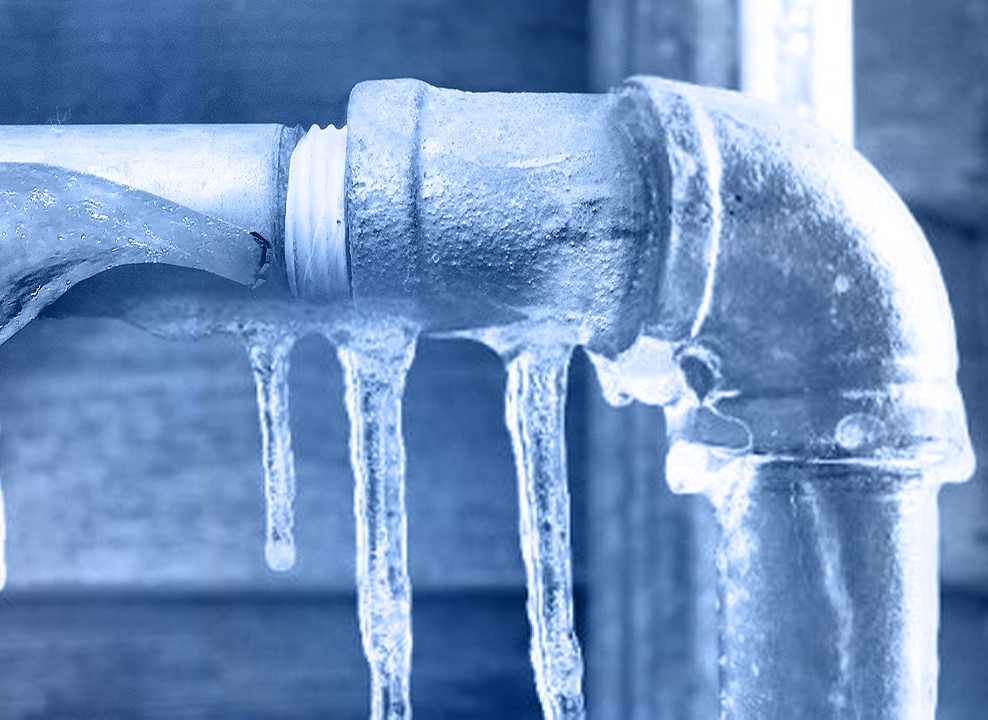Ways to Maintain Your Pipes from Freezing Issues: Essential Tips
Ways to Maintain Your Pipes from Freezing Issues: Essential Tips
Blog Article
We have come across this great article pertaining to How To Avoid Freezing Pipes directly below on the web and reckoned it made sense to discuss it with you here.

Cold weather can ruin your plumbing, especially by freezing pipes. Below's exactly how to prevent it from taking place and what to do if it does.
Introduction
As temperature levels decrease, the risk of frozen pipelines increases, potentially leading to costly repair services and water damage. Comprehending how to avoid frozen pipelines is crucial for house owners in cool climates.
Avoidance Tips
Insulating at risk pipes
Wrap pipes in insulation sleeves or utilize heat tape to safeguard them from freezing temperature levels. Focus on pipelines in unheated or external areas of the home.
Heating techniques
Maintain interior spaces sufficiently heated, especially areas with plumbing. Open up cabinet doors to enable cozy air to circulate around pipes under sinks.
How to recognize icy pipelines
Search for lowered water flow from faucets, uncommon odors or noises from pipes, and visible frost on revealed pipelines.
Long-Term Solutions
Structural changes
Take into consideration rerouting pipelines away from exterior wall surfaces or unheated locations. Include added insulation to attic rooms, basements, and crawl spaces.
Updating insulation
Invest in top quality insulation for pipelines, attic rooms, and wall surfaces. Appropriate insulation helps keep consistent temperature levels and decreases the risk of frozen pipelines.
Securing Exterior Pipes
Yard tubes and exterior faucets
Disconnect and drain garden pipes before winter season. Install frost-proof faucets or cover outside taps with shielded caps.
Understanding Icy Pipelines
What triggers pipes to ice up?
Pipes freeze when exposed to temperature levels below 32 ° F (0 ° C) for expanded periods. As water inside the pipes freezes, it increases, taxing the pipe walls and potentially triggering them to burst.
Risks and damages
Icy pipelines can result in supply of water disruptions, home damages, and pricey fixings. Ruptured pipes can flood homes and cause substantial architectural damage.
Indicators of Frozen Piping
Recognizing frozen pipes early can stop them from rupturing.
What to Do If Your Pipes Freeze
Immediate activities to take
If you suspect frozen pipes, keep taps open to relieve pressure as the ice melts. Use a hairdryer or towels soaked in warm water to thaw pipelines gradually.
Final thought
Avoiding icy pipelines requires positive actions and fast reactions. By understanding the causes, indicators, and safety nets, homeowners can secure their plumbing throughout winter.
Helpful Tips to Prevent Frozen Pipes this Winter
UNDERSTANDING THE BASICS: WHY PIPES FREEZE AND WHY IT’S A PROBLEM
Water freezing inside pipes is common during the winter months, but understanding why pipes freeze, and the potential problems it can cause is crucial in preventing such incidents. This section will delve into the basics of why pipes freeze and the associated problems that may arise.
THE SCIENCE BEHIND FROZEN PIPES
When water reaches freezing temperatures, it undergoes a physical transformation and solidifies into ice. This expansion of water as it freezes is the primary reason pipes can burst. As the water inside the pipe freezes, it expands, creating immense pressure on the walls. If the pressure becomes too great, the pipe can crack or rupture, leading to leaks and water damage.
FACTORS THAT CONTRIBUTE TO PIPE FREEZING
Low Temperatures: Extremely cold weather, especially below freezing, increases the risk of pipes freezing. Uninsulated or Poorly Insulated Pipes: Pipes located in unheated areas, such as basements, crawl spaces, or attics, are more prone to freezing. Insufficient insulation or lack of insulation altogether exacerbates the problem. Exterior Wall Exposure: Pipes running along exterior walls are susceptible to freezing as they encounter colder temperatures outside. Lack of Heating or Temperature Regulation: Inadequate heating or inconsistent temperature control in your home can contribute to frozen pipes. PROBLEMS CAUSED BY FROZEN PIPES
- Pipe Bursting: As mentioned earlier, the expansion of water as it freezes can cause pipes to burst, resulting in significant water damage.
- Water Damage: When pipes burst, it can lead to flooding and water damage to your property, including walls, ceilings, flooring, and personal belongings.
- Structural Damage: Prolonged exposure to water from burst pipes can compromise the structural integrity of your home, leading to costly repairs.
- Mold and Mildew Growth: Excess moisture from water damage can create a favorable environment for mold and mildew growth, posing health risks to occupants.
- Disrupted Water Supply: Frozen pipes can also result in a complete or partial loss of water supply until the issue is resolved.
WHY CERTAIN PIPES ARE MORE PRONE TO FREEZING
- Location: Pipes located in unheated or poorly insulated areas, such as basements, crawl spaces, attics, or exterior walls, are at higher risk of freezing.
- Exterior Pipes: Outdoor pipes, such as those used for irrigation or exposed plumbing, are particularly vulnerable to freezing as they are directly exposed to the elements.
- Supply Lines: Pipes that carry water from the main water supply into your home, including the main water line, are critical to protect as freezing in these lines can affect your entire plumbing system.
- Underground Pipes: Pipes buried underground, such as those connected to sprinkler systems or outdoor faucets, can be susceptible to freezing if not properly insulated.
https://busybusy.com/blog/helpful-tips-to-prevent-frozen-pipes-this-winter/

I am just very intrigued by Helpful Tips to Prevent Frozen Pipes this Winter and I'm hoping you appreciated the piece. Loved our article? Please quickly share it. Let another person locate it. We thank you for reading our article about 6 Ways to Prevent Frozen Pipes.
See Availability Report this page